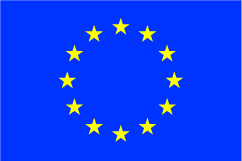
Management and implementation on the base of the project activities:
1. Email exchanges between partners
2. Inform about the project
3. The first official teachers´ video conference, start up the project activities
4. Initial evaluation of the project
5. Erasmus+ corners. Pupils create a notice board with the info about each partners´ country
6. Erasmus+ notice board: each school prepares a notice board for disseminating the
partnership´s activities
7. Management of school webpage about project
8. Knowing me, knowing you! – DVDs, PPT and videos-info regarding each partner
country
9. The introduction seminar led by a specialist of the Env studies via skype in all countries at the same time, project terminology definition, participant´s mind maps
10. Project´s logo created by pupils using various techniques. Schools logo competition
11. Mascot creation. It will travel around the world, bring new stories, make friends in each school
12.Compare mind maps by pupils, common, different views on project issue, env changes in all countries, different views on the same problems
13. Pupils Ecofootprint in all countries, sociometry
14. Create calendar with activities of special env days
15. The First project meeting: presentation of each country´s outcommes: calendar, mind maps and pupils´ecofootprints. Share dvds, outcomes. Planting trees (10/2017) Leading: SK
16. Pupils survey "Through local problems to global env problems"
17. Investigation of causes that could be the reason of env migrants in our country Introduction and explanation of the term "environmental migrants".
18. Exchanging Christmas cards by post
19. The first official pupils´video conference - exchanging information regarding to the outcomes of local problems, discussion about env migrants
20. Special "Data analyses week" - Math for analyses meteorological data
21. The Second project meeting: presentation of survey outcommes about local and global env problems, env migrants, results from special "data analyses week". Share dvd´s with the outcomes. 05-06/2018. Leading: Greece
22. Create of ecopedagogical place (community garden) with local plants and herbs.. Making a short video of pupils working in the community garden
23. Involvement of children - English, Music, Art, ICT in writing tales, short stories, songs, drawing and painting pictures, making posters and ppt of the impact on environment to causes of their movement and to the social, economic and cultural impact
24. Historical beginning of impact on environment in local area - History in all partner countries.
25. Pupils make the list of endagered plants and animals in a local area - Biology
26. Email exchange during summer holidays
27. Studying local areas with env degradation - Geography. Identifying the knock-on effect at all level. Creation of maps with the help of ICT and documentary studying.
28. The Third project meeting: presentation of survey outcomes about historical beggining of the impact on environment, list of endangered plants and animals, Maps presentation about degradation occuring in a local area, short stories, posters, presentations, pictures and short videos from community garden made by pupils. Share dvd´s with the outcomes. 09-10/2018. Leading: Italy
29. Exchanging env Christmas cards and gifts by post (recycling materials)
30.The Fourth project meeting: presentation of each country outcomes of annual project´s work - qualitative and quantitative evaluation. Evaluation of calendar with special env days, exchanging of photos. Activity C1 in Poland - training in Poland with pupils. 02-03/2018. Leading: Poland.
31. Env trips and excursions for pupils in each country. Excursions reflection
32. Stories, chats with env specialists
33. The second official pupils´video conference exchanging information: outcomes of excursions and env trips, storie, chats with env specialists.
34. Search for black dumps in local area. Using „Trashout“ application (https://www.trashout.ngo). Inform municipality about illegal dumps through the mobile application.
35. Using energy in each country, questionnaire: use of energy at home, school and each country.
36. pH analyses. Chemical analyses of water sources and soil in local area.
37. Pupils sum up results of env project research in each country, prepare „Science and Art papers“ that are outcome of the project.
38. Finish partners meeting, prepare of The Atlas (ilustrated by children, information about local environmental problems and environmental migrants, maps, photos, case study...), Activity C2 - training course to Slovakia with pupils. 05-06/2018. Leading: SK
39. The second ecofootprint of pupils in all participating countries evaluated at the end of project
40. Knowledge test- the level of knowledge gained through project.
41. Evaluation of the project, sociometry.
42. Summer holidays – finish with project

The European Commission support for the production of this publication does not constitute an endorsement of the contents which reflects the views only of the authors, and the Commission cannot be held responsible for any use which may be made of the information contained therein.
